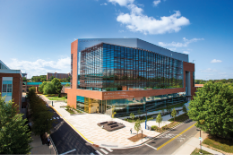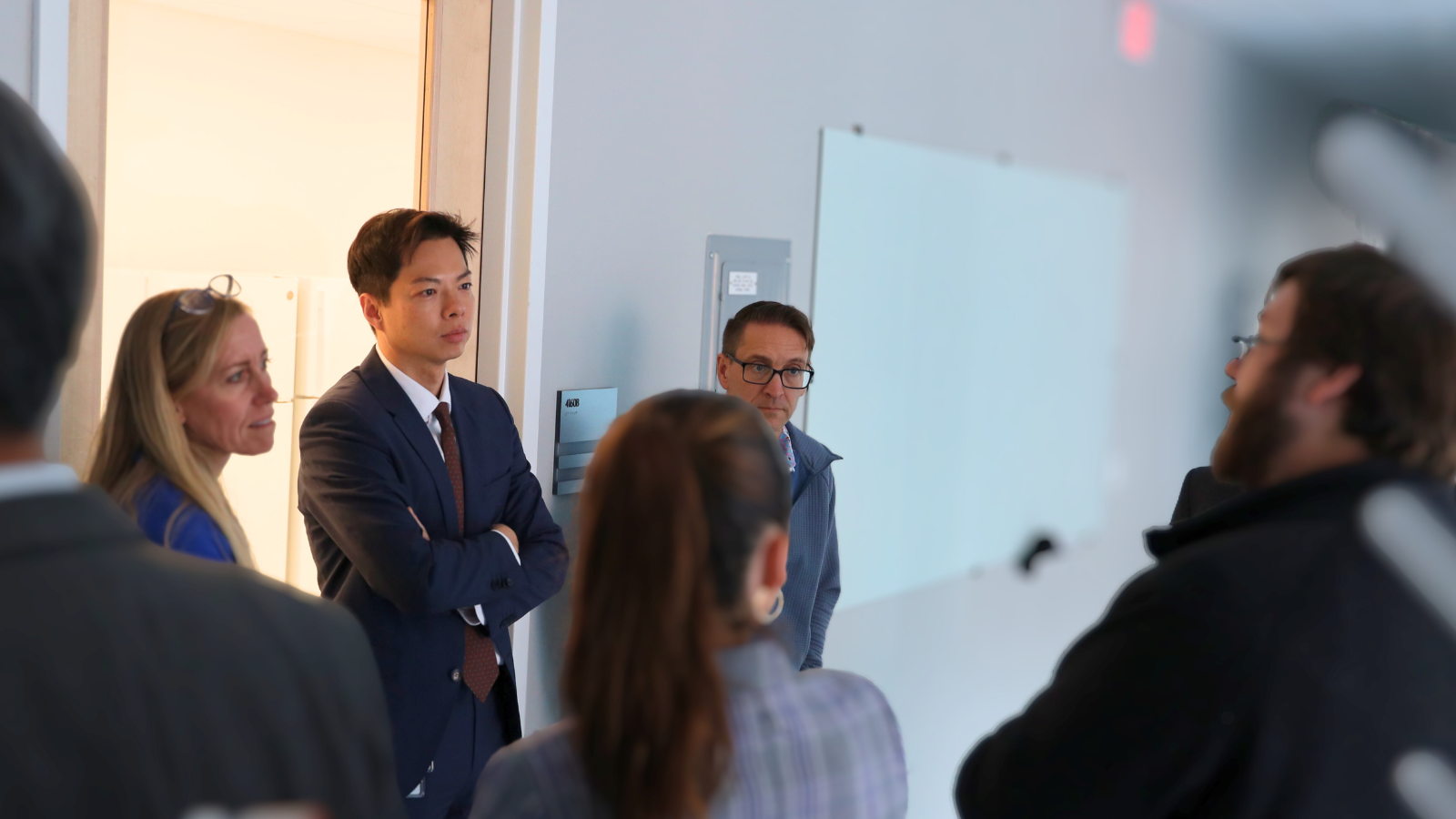News Story
Conrad and Tsai Recognized with Research Awards at BIOE Retreat

The Fischell Department of Bioengineering (BIOE) hosted its annual retreat virtually on August 27, 2020. The retreat provides graduate students, faculty, and staff with an opportunity to welcome new Ph.D. students, discuss new research, and create new collaborations - even when socially distanced.
Graduate students also introduced their research in 15-minute traditional presentations and 5-minute “flash” presentations. Christina Conrad and Shannon Tsai were recognized for outstanding research demonstrations in the traditional presentation and "flash" presentation categories, respectively.
Conrad is a fifth-year Ph.D. student and a member of Giuliano Scarcelli’s Optics Biotech Lab.
She summarized her research presentation: “In late stages of ovarian cancer, a build-up of fluid called ascites causes immense clinical challenges. Previous in vitro work has pointed to a relationship between fluid flow and increased chemoresistance, as well as underlying cytoskeletal changes. Yet, quantifying these mechanical changes within microfluidic platforms has not been achievable with current technologies since samples are not easily accessible. Using Brillouin confocal microscopy, a non-contact optical technique, we measured the mechanical properties and showed a reduction in stiffness under flow compared to static cultures. Moreover, we found strong correlation between mechanical properties of cells and osmolarity of the media, indicating that water within a cell could be a driving factor for mechanical changes observed under flow. Moving forward, we are delving deeper into the relationship between cell volume and stiffness within tumors. Since mechanical cues are already known to be important in key cancer processes such as survival, proliferation, and migration, further understanding the cause of these changes has the potential to lead to the development of methods to control unfavorable cancer behaviors.”
“The BIOE retreat is a great day to share research among colleagues in our department,” said Conrad. “Despite the circumstances of a virtual retreat, I was happy at the opportunity to present my research and receive positive interest and insightful questions.”
Tsai is also a fifth-year Ph.D. student and a member of Chris Jewell’s Immune Engineering Lab. Her research presentation focused on multiple sclerosis (MS) therapies.
“Current therapies for MS ameliorate symptoms of disease but fail to differentiate between healthy and self-reactive disease associated immune cells, which can leave patients immunocompromised,” Tsai explains. “New therapies aim to target lymph nodes- tissues that coordinate immune responses- to promote development of more selective tolerogenic responses. My ongoing work in the lab uses direct injections of microparticles into lymph nodes to understand how immune signal i) dose ii) combinations iii) localization and iv) persistence contributes to the development of systemic tolerance, important insight for driving translation of immunotherapies for autoimmune disease.”
“As someone looking to work in industry or consulting after graduation, it's really exciting to work on a project with clear translational impact,” says Tsai.
Published September 15, 2020









